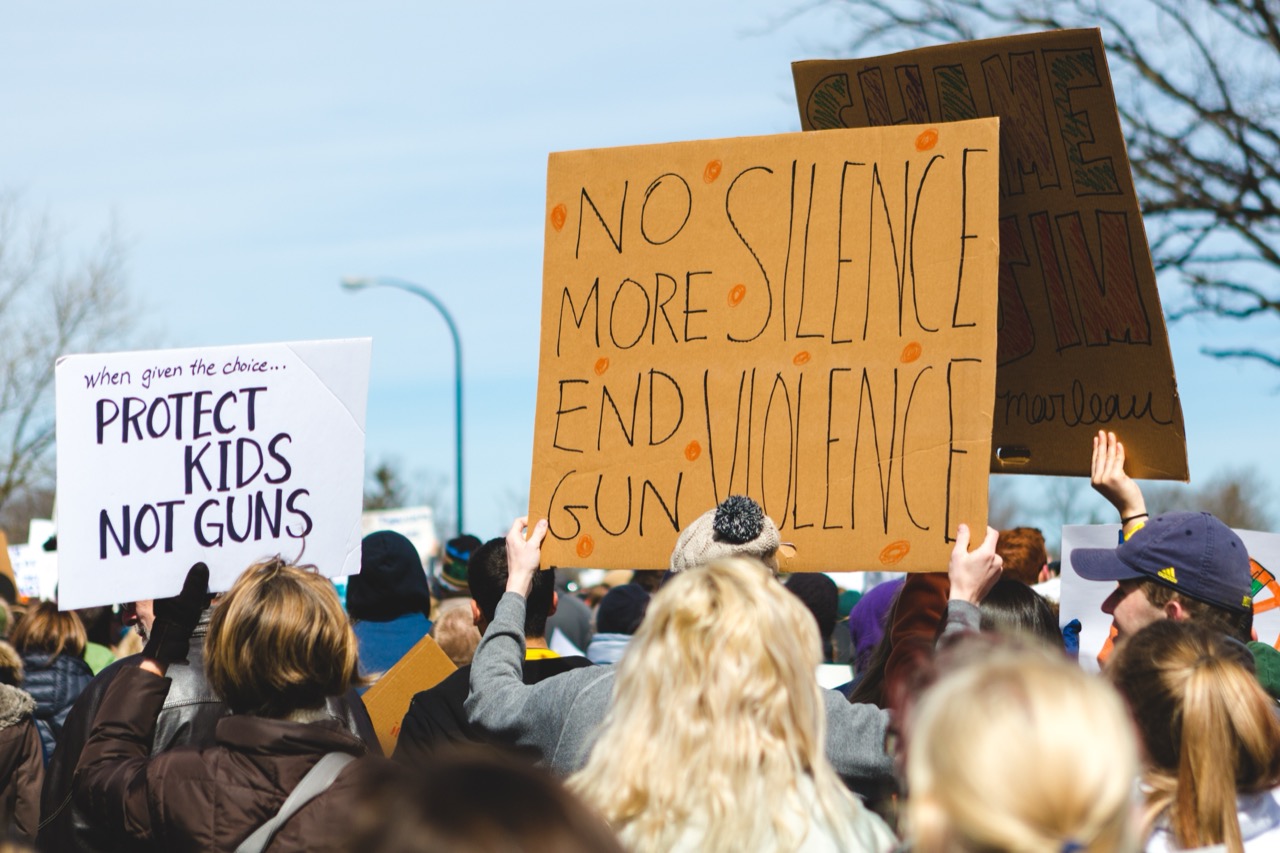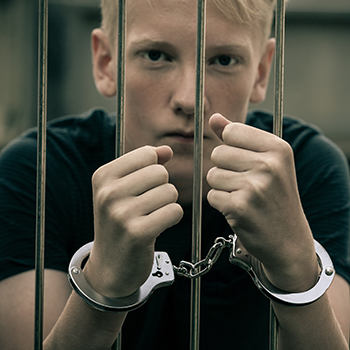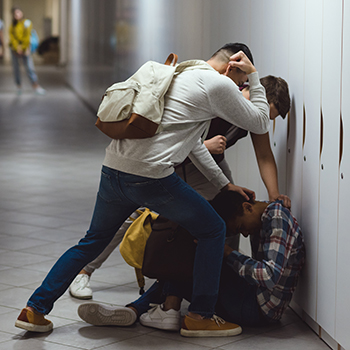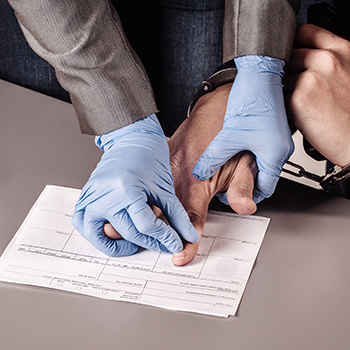



Orange County Juvenile Defense Lawyer
What happens if your child gets in trouble? What happens if they are arrested by the police, or charged with juvenile crimes ?
You want an Orange County juvenile attorney who focuses the area of law to help you. A juvenile lawyer with a proven record of helping their clients in the toughest, most vulnerable situations of their lives. You would call Orange County Juvenile Defense Attorney, Katie Walsh. Our goal is simple: to do everything possible under the law to achieve the best results for your child.
Police agencies and Schools have become increasingly aggressive with calling the police, charging children with crimes, and expelling them from school. We need to protect our children! As a juvenile defense lawyer in Orange County, CA, Katie has successfully defended cases involving the most serious charges from Attempted Murder or Rape, down to the minor charges of Petty Theft- all the while obtaining the best results with the least impact on my clients’ records.
An Orange County juvenile lawyer dedicated to getting results for your child in a wide range of areas including:
- Robbery
- Assault With Force Likely to Commit GBI
- Assault With a Deadly Weapon
- Sexting / Child Pornography
- Sexual Assault / Lewd Acts on a Minor
- Weapons on School Grounds
- Petty Theft / Grand Theft
Robbery (Penal Code 211)
Robbery is a very serious offense that can carry serious consequences for your child. If they are 16 years or older it is considered a “strike offense” and you should contact an experienced Juvenile Attorney in Orange County immediately.
In order to convict you of robbery, the prosecutor must prove the following facts:
- You took property that didn’t belong to you,
- From another person’s possession or immediate presence,
- Against that person’s will
- Using force or threats, and
- When you took the property, you intended to deprive the owner of it permanently or for such an extended period of time that the owner would be deprived of a major portion of the value or enjoyment of the property.
- Please note that if you physically struggle with a store clerk, while attempting to leave the premises, that can be filed as a Robbery (“Estes Robbery”). A skilled attorney can work with the D.A. to get those charges changed.
- Robbery is a “Strike Offense.”
Robbery is the taking of someone’s property against their will, with the use of threat or force. That force can be grabbing, pushing or shoving someone out of the way. It can also be threatening to hurt them, or threatening with a weapon. Your child can also be convicted of Robbery if they were “along for the ride”, and driving or sitting in the car, or if your child did not have the weapon.
Examples of Robbery are 1) Your child enters a store and steals a bottle of alcohol. The store security guard sees this and tells your child to stop. Your child runs out of the store, but the clerk grabs their coat and takes your child to the ground and they struggle. Your child gets up and runs out. 2) Your child is walking on the street and confronts another kid and tells them to give up his IPhone and their wallet or else he will beat him up. (even though there is no weapon- there is still the threat of force used).
Assault With Great Bodily Injury (Penal Code 245(a)(4)) / Assault With a Deadly Weapon (Penal Code 245(a)(1))
Assault is a crime where the accused person puts the victim in reasonable fear of bodily injury. The person charged with this offense does not need to have physical contact with the victim. A person must commit an assault, and use for that is likely to produce “great bodily injury.” No bodily harm has to occur for an assault to take place.
Great Bodily Injury, or GBI is a significant or substantial injury (i.e. broken bone, concussion, and/or stitches)
An example of Assault with a Deadly Weapon is: if a person points a gun (or other dangerous weapon- such as a knife, or a baseball bat) at another person then he can be charged with assault with a deadly weapon. Even if the gun was not loaded, or the person holding the gun or knife had no intention of using the weapon, he/she can still be charged if the victim was in reasonable fear as a result of the person pointing the gun at him.
Assault with GBI can be 2 kids fighting at school, and 1 kid strikes the other so hard the jaw is broken.
If a child is 16 or old this crime can be considered a STRIKE charge. If your child has been charged with PC 245 (a)(1), orange county juvenile defense lawyer Katie Walsh is here to help.
Sexting and Child Pornography (Penal Code Section 311.1-12)
How Can Your Child Be Charged With Child Pornography?
For most parents it is out of the realm of comprehension for Child Pornography and their Child to even be in the same sentence! In this day and age it absolutely happens. How? Sexting and Social Media.
Sexting is sending and receiving sexually explicit messages, primarily between mobile phones. “Sexting” has been promoted through the advent of social media and smart phones, and includes sending photos.
Child Pornography is the sexual exploitation of a child, or anyone under 18 years of age. P.C. 311.1 through 311.12 makes it a crime to 1) knowingly send, transport, produce, possess or duplicate any child pornography, with intent to distribute it; 2) knowingly develop, duplicate, print or exchange any child pornography; 3) knowingly hire, employ, use, persuade, or coerce a minor to participate in the production of child porn; 4) knowingly advertise obscene child porn for sale or distribution; or 5) knowingly possess or control any child pornography that was produced using a person under 18.
For example: If your son or daughter sends naked or sexually explicit photos of themselves to someone under 18 years old (like their girlfriend or boyfriend), they be charged with a crime; and so can the receiver of the photos, or someone who passed the pictures around.
I have defended numerous cases of Child Pornography in Juvenile Court with excellent results. If your child has been involved in Sexting, Social Media or Child Pornography issues, contact the Law Office of Katie Walsh for help (714) 351-0178
Lewd Acts on a Minor / Sexual Assault (Penal Code 288)
Sometimes a child’s body grows faster than they can understand. They have sexual questions and curiosities that get channeled into the wrong outlet, and they make poor choices not realizing the impact of their actions.
Sexual Assault is committed by your child touching another child somewhere on his/her body for sexual purposes. It is also referred to as “lewd acts on a minor/ under 14” or “acts of lewd and lascivious conduct.” These cases typically involve accusations that the child was touched or fondled on a sexual organ, or that some overt act of child molestation took place.
However, one can be charged with lewd acts even if the touching was not on a sexual organ, and even if the touching was done over the child’s clothes (rather than on the bare skin). Your child can also be charged even if the acts were consensual- if both children seemingly agreed to the conduct in question, like a game of Doctor.
These cases tend arise when a child or children reach the age of sexual curiosity and start exploring boundaries, often times with another younger relative. This does not mean that your child is “sexual predator.” In fact studies show these situations in children do not mean that your child will grow into a “predator.” It means they need boundaries, therapy, and education about their bodies and other people’s bodies.
I am an experienced orange county juvenile defense attorney with many successes in defending these types of allegations. Because the social consequences of a conviction under this particular statute are very serious, a person accused of such crimes must immediately enlist the help of an attorney who will fight hard for the best possible outcome.
Weapons on School Grounds PC 626.10
In CA many weapons are outlawed in schools. This law prohibits the possession of certain weapons while on school grounds. This crime is committed when a weapon like: a BB gun, dagger, dirk, folding knives with a lockable blade, a knife with a blade 2.5 inches or longer, pellet guns, a razor with an unguarded blade, stun guns, and tasers, are brought on school grounds from K-12 schools, college or universities.
California Penal Code 626.9 – Gun Free School Zones
California’s gun-free school zone act was implemented in 1995. This act prohibited the possession or discharge of a firearm while in school zones. A school zone is considered being within one thousand feet of a public or private school, college, or university.
Theft (Penal Code Section484-488)
The most common theft charge is Petty Theft (Penal Code Section 488); this can only be charged as a misdemeanor. It carries a maximum of 1 year in jail. Generally speaking if the item(s) stolen are $950.00 or less than the matter can be charged as a Petty Theft. PLEASE NOTE THAT A PETTY THEFT VIOLATION WITH A PRIOR PETTY THEFT CONVICTION CAN CAUSE THE NEW CASE TO BE FILED AS A FELONY.
Grand Theft (Penal Code Section 487)
A theft of item(s) of a value in excess of $950 can be charged as a felony and is known as Grand Theft (Penal Code Section 487); it can carry a maximum of up to three years in state prison. However a skillful attorney can keep a person convicted of even felony grand theft out of jail. Also, Grand Theft can be charged as a misdemeanor.
Practice Areas

Meet Katie Walsh
Katie Walsh is dedicated to her clients and their needs, understanding parents are frequently more affected by the juvenile process than their child. She gets the best results possible and is in constant communication with her clients and their parents.
She has spoken at numerous community events regarding Parents and Juvenile Law.
Client Reviews
I hired attorney Katie Walsh to help my son when he was found with a large amount of drugs on school campus. She got us through the Expulsion Hearing, and miraculously he can go back to school at the winter semester after he catches up with his classes. The...
I hired Katie Walsh to have my felony convictions expunged. She was able to expunge my record within 6 weeks of me giving her all the information. Even though technically I had a probation violation, and therefore the expungement was not automatic, she was...
My 16 year old son was charged with possession of Marijuana, HS 11357(b). I was very concerned about what would happen to him and how this would affect his future. I contacted Ms. Walsh and she assured me that everything would be Ok- and it was. The judge...
My child was charged with Felony Penal Code 597(a)- Animal Cruelty. After hiring Katie Walsh, she got the charges reduced to a misdemeanor, counseling, and 40 hours of chores at home. We come back in 6 months and the case will get completely dismissed and...
I hired Katie Walsh to represent my son on sexual abuse allegations- P.C. 288(a) and P.C. 288(b)- they were Strike Charges. After negotiating with the D.A., she got all the strike charges dismissed, and got my son released from custody with credit for time...
Katie Walsh was fantastic throughout this entire process! My 13 year old son was charged with two counts of lewd act on a minor, PC 288(a) and was in juvenile hall. After hiring Ms. Walsh, she GOT MY SON OUT OF JAIL and back home with us at the detention...
My 14 year old son was arrested at school for P.C. 311 (child pornography). My son had innocent and stupid nude pictures of himself and friends on his phone. Ms. Walsh was extremely easy to talk to, and made my son feel very comfortable during this process. As...
Ms. Walsh was a life saver when I didn't know what was going on, or how to handle the situation. My young daughter was attacked at her middle school and was seriously injured. At a time when both the school and the police were giving us the run-around and not...
I hired Katie Walsh to seal my juvenile record of PC 288(a) (lewd act on a minor), after my request had been denied by a Judge and by the Probation Department. After speaking with Probation, the DA and the Judge at a hearing, she was able to get my record...
I was charged with a Felony Conspiracy charge- PC 182. After hiring Ms. Walsh she got my charged reduced to a misdemeanor right away, and now I just have to do community service and in 6 months my entire case will be dismissed! I would recommend Ms. Walsh if...
Ms. Walsh was like a breath of fresh air throughout this entire process. I was uncertain about the outcome, but she told me everything would be ok- and it was. She had my juvenile record sealed within 3 months of speaking with her. She was always available to...
Ms. Walsh got the judge to terminate my son's probation and seal his 2 juvenile cases (Penal Code 288(a) and Penal Code 242) even though he had violated my probation by picking up a new case. By getting his record sealed under penal code 786, it means his...
At a very difficult time in my life I contacted attorney Katie Walsh. I am a teacher and was being harassed/stalked by a parent at my school. I wanted a Restraining Order against this person. Ms. Walsh listened to me and made feel like I was her most...
My son was charged with Lewd Conduct, P.C. 647 out of Downey, CA. After hiring Ms. Walsh, she spoke with the District Attorney, Probation, and the Judge. Even though the judge was not pleased with the offer, she was able to get my son Community Service and a...
It is with sincere gratitude that I send this recommendation As a parent of a child that was arrested on a Felony Domestic Abuse charge and over 2000 miles away I had to rely on friend of a friends word that you would be able to help us. Those words couldn't...
I really liked having Ms. Walsh as my attorney. She visited me in Juvenile Hall. I was charged with four counts of Robbery (Penal Code 211). This was my 8th juvenile petition. Ms. Walsh got 2 of the robbery charges dismissed, and I only served 30 days in...
I was arrested for a felony Domestic charge, PC 273.5(a). After I hired Katie Walsh, my entire case was dismissed. I never had to appear in court. I felt very comfortable with Ms. Walsh- she was easy to speak with, she was very accessible and easy to get a...
Katie was instrumental in helping me with a criminal matter as an advocate for me and my children when I was a named victim in a DV case. She patiently and expediently addressed all of my questions and was an invaluable source of information. She prepared me...
My daughter was pulled over arrested for having a Fake ID. After hiring Ms. Walsh my daughter did not have to plead guilty- which would have affected her license status. She did community service, completed a legal awareness class, returned in 6 months and...
My 14 year old daughter was involved in an assault and battery- PC 240/242, in Irvine. After hiring Katie Walsh the case was not referred to Court. My daughter was able to complete a class and the case will be dismissed entirely! Ms. Walsh was available to us...
My son was charged with possession of Child Pornography P.C. 311.11(a) - a charge I did not realize a child could be guilty of! As parents were beside ourselves when we found this out, and contacted Katie Walsh. She listened to us, guided us through the...
From San Diego I contacted Ms. Walsh about sealing my juvenile record in Orange County regarding a Petty Theft charge. She was always very responsive to any of my questions, and consistently kept me updated. Even though probation said this would take...
Our Videos
Orange County Juvenile Defense Blog

Defending Minors Accused of False Police Reports or 911 Misuse Teenagers sometimes make poor decisions that lead to serious legal consequences. What begins as a prank call, exaggeration, or impulsive statement can...

How Foster Care Status Impacts Juvenile Court Proceedings Foster children accused of crimes in Orange County face unique challenges that biological families often do not encounter. Between caseworker...

Teen Prescription Drug Misuse: Criminal Charges and Treatment Alternatives in Orange County Finding prescription medications in your teenager’s possession that aren’t prescribed to them triggers both health concerns and potential...
Our Locations
Contact Us Now








